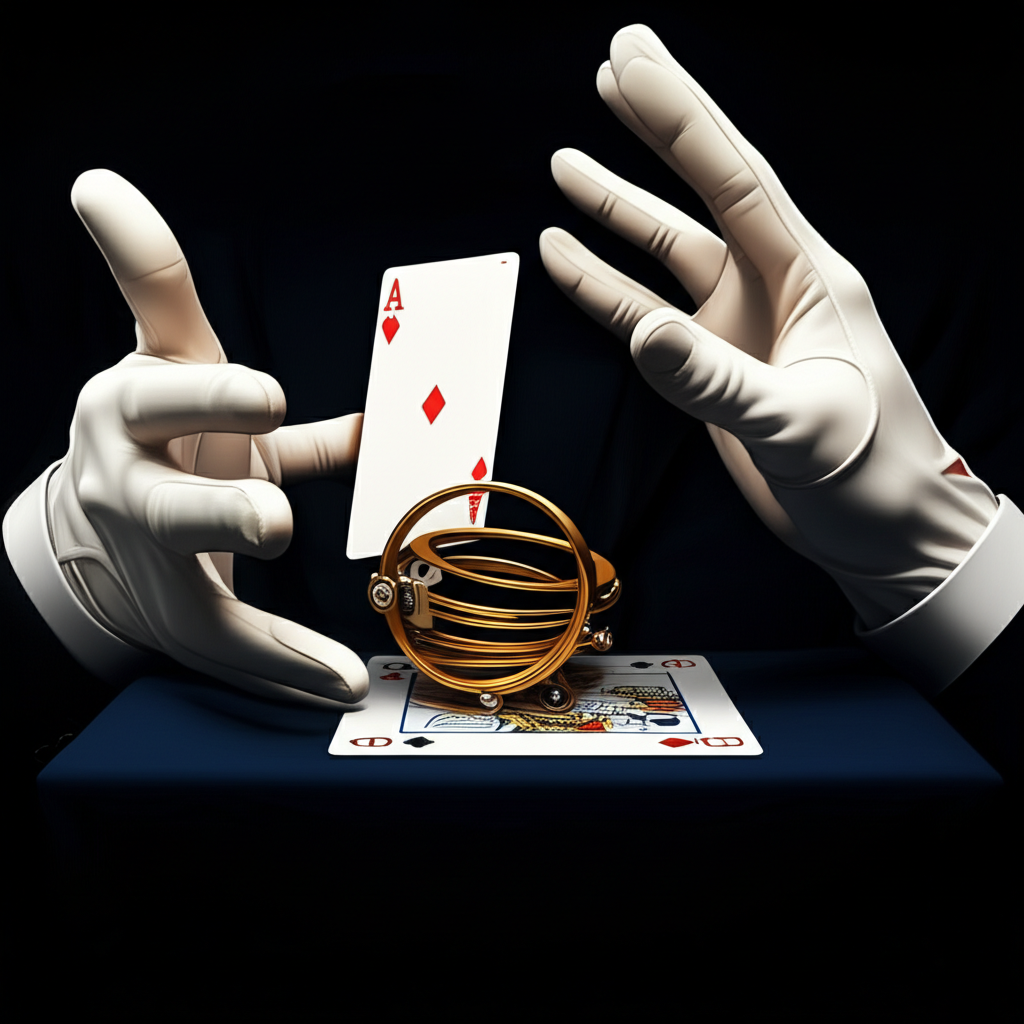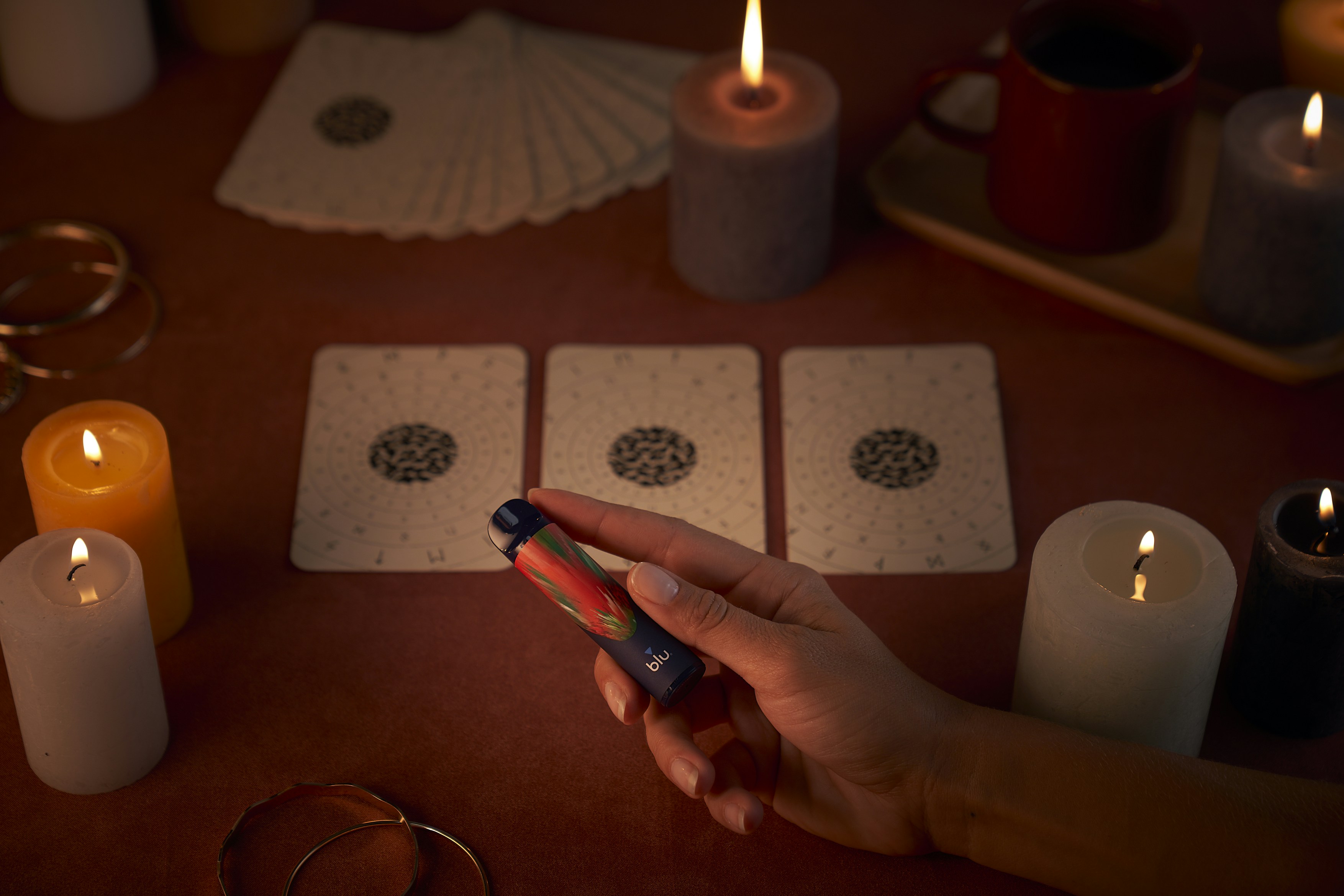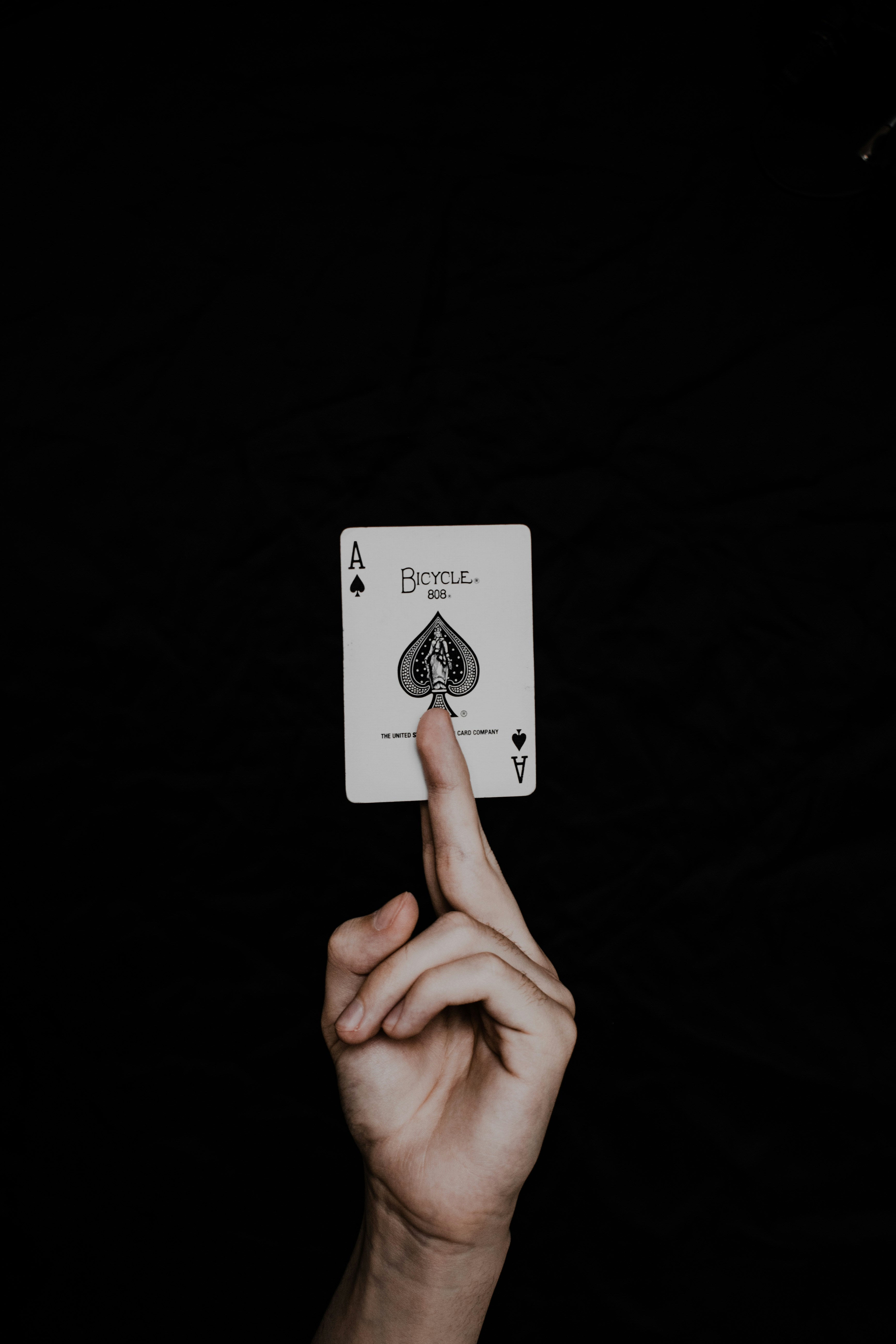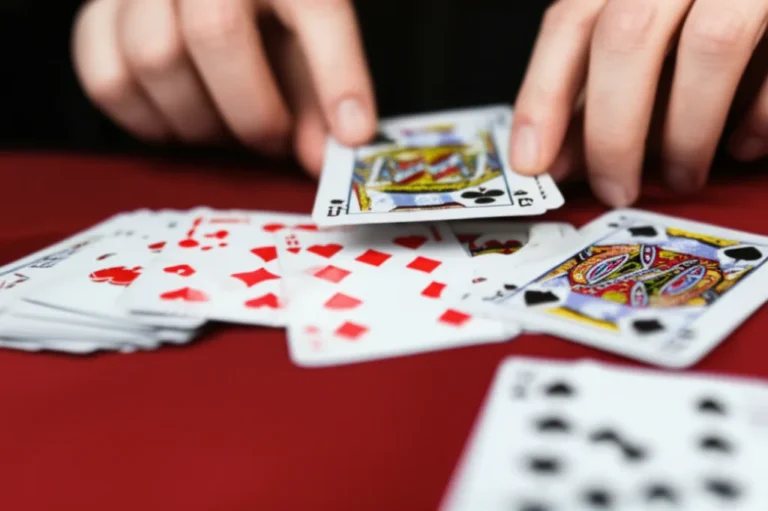Support our educational content for free when you purchase through links on our site. Learn more
Magic Tricks Revealed: 15 Mind-Blowing Secrets You Must Know (2025) 🎩

Ever wondered how magicians make coins vanish into thin air or read your mind like psychic wizards? You’re not alone! At Magic Trick™, we’ve spent years mastering and unraveling the mysteries behind the most astonishing illusions. In this ultimate guide, we’re pulling back the curtain on 15 incredible magic tricks revealed—from classic sleight of hand to cutting-edge digital deception. Whether you’re a curious spectator or an aspiring magician, prepare to have your mind blown and your curiosity satisfied.
Did you know that many magic tricks rely more on fooling your brain than on actual “magic”? Later, we’ll dive into the psychology behind deception and reveal how magicians manipulate your attention with expert misdirection. Plus, we’ll share insider tips on how you can start performing jaw-dropping tricks yourself. Ready to see the secrets behind the spectacle? Let’s get started!
Key Takeaways
- Magic is a blend of psychology, skill, and misdirection, not just flashy props.
- 15 common types of magic tricks revealed, including sleight of hand, mentalism, and digital illusions.
- Understanding the brain’s role in deception enhances your appreciation of magic.
- Learning magic requires practice, theory, and showmanship—anyone can start today!
- Respecting the magician’s code is essential even when secrets are shared.
Ready to start your magical journey? Check out top-rated magic kits and props to practice your skills:
- Ellusionist Card Magic Kits: Amazon | Ellusionist Official
- Daryl’s Coin Magic DVDs: Amazon | Penguin Magic
- Basic Magic Props Kits: Amazon | Walmart
Table of Contents
- ⚡️ Quick Tips and Facts
- 📜 The Ancient Art of Deception: A Brief History of Magic Revealed
- 🤔 Why Do We Reveal Magic Tricks Anyway? The Ethics and Evolution of Exposure
- 🧠 The Psychology of Deception: How Magic Fools Your Brain (and Ours!)
- Unmasking the Mystery: 10 Common Types of Magic Tricks Revealed!
- 🚫 Common Misconceptions About Magic Revelations: What’s True and What’s Not
- 📚 Learning the Craft: Your First Steps into the World of Magic
- 🔒 Protecting the Art: Why Magicians Guard Their Secrets (Mostly!)
- 🌟 Beyond the Secret: The True Magic of Performance and Connection
- 🎉 Conclusion: The Enduring Allure of Magic, Revealed or Not
- 🔗 Recommended Links for Aspiring Magicians and Enthusiasts
- ❓ FAQ: Your Burning Questions About Magic Tricks Revealed, Answered!
- 📚 Reference Links and Further Reading
⚡️ Quick Tips and Facts
Welcome to the dazzling world of magic tricks revealed! Before we dive into the rabbit hole of secrets, here are some quick tips and facts from the Magic Trick™ team to whet your curiosity:
- Magic is all about perception — it’s not just what you see, but how your brain interprets it. 🧠
- Misdirection is king! The magician’s best friend is your attention, cleverly guided away from the secret move.
- Practice makes perfect — even the simplest sleight of hand takes thousands of rehearsals.
- Not all magic tricks are created equal — some rely on gimmicks, others on pure skill or psychology.
- Revealing a trick doesn’t ruin the magic; it often deepens your appreciation for the craft.
- Magic has a rich history dating back thousands of years, evolving alongside human culture.
- Modern magic blends technology and psychology in ways that would astound Houdini himself.
Curious about how magicians fool your brain? Or why some secrets are fiercely guarded while others are shared? Keep reading! And if you want to explore the most popular styles of magic, check out our detailed guide on What Is the Most Popular Magic? 🎩 Top 7 Styles Revealed (2025).
📜 The Ancient Art of Deception: A Brief History of Magic Revealed

Magic isn’t just a party trick — it’s an ancient art form that has fascinated humans for millennia. From the shamans of prehistoric times to the court magicians of ancient Egypt and China, magic has always been about bending reality to inspire awe.
Origins and Evolution
- Ancient Egypt: Magic was intertwined with religion and healing. The famous “cups and balls” trick dates back over 4,000 years.
- Greek and Roman Eras: Magicians performed in public squares, often blending illusion with storytelling.
- Middle Ages: Magic was sometimes feared and associated with witchcraft, but also flourished in royal courts.
- 19th Century: The golden age of stage magic, with legends like Jean Eugène Robert-Houdin and Harry Houdini pushing boundaries.
- Modern Day: Magic has embraced technology, psychology, and pop culture, becoming a global phenomenon.
For a deeper dive into magic’s fascinating timeline, visit our Magic History section.
🤔 Why Do We Reveal Magic Tricks Anyway? The Ethics and Evolution of Exposure
You might wonder: Why would magicians reveal their secrets? Isn’t that taboo? Well, it’s complicated.
The Balancing Act
- Preserving the art: Some magicians believe that revealing tricks educates and inspires new talent.
- Guarding the mystery: Others argue that exposure dilutes the wonder and can hurt performers’ livelihoods.
- Cultural shifts: The internet age has accelerated trick exposure, forcing magicians to innovate constantly.
- Ethical considerations: Revealing a trick without permission is frowned upon, but teaching magic openly is celebrated.
Our team at Magic Trick™ respects the craft’s traditions while embracing transparency to help enthusiasts learn responsibly. For more on this, check out our Magic Secrets articles.
🧠 The Psychology of Deception: How Magic Fools Your Brain (and Ours!)
Magic is less about sleight of hand and more about manipulating your brain’s perception. Neuroscientists now study magicians to understand how attention, memory, and expectation can be fooled.
Key Psychological Principles
- Pattern Recognition: Your brain looks for patterns and fills in gaps, which magicians exploit.
- Misdirection: Directing your focus away from the secret action.
- Cognitive Load: Overloading your brain with information to reduce critical thinking.
- Illusion of Choice: Making you believe you have free will when the outcome is controlled.
- Emotional Engagement: Humor, surprise, and storytelling distract and deepen the illusion.
Teller, the legendary magician, famously said magicians are “sexier than lab rats” to neuroscientists because of their mastery in perception manipulation. For a fascinating read, see Teller’s 7 Ways to Fool the Brain.
Unmasking the Mystery: 10 Common Types of Magic Tricks Revealed!
Ready to peek behind the curtain? Here are 10 classic categories of magic tricks with some juicy reveals from our Magic Trick™ vault.
1. ✋ Sleight of Hand Secrets: The Art of Misdirection
Sleight of hand is the magician’s bread and butter — quick, skillful finger movements that hide the truth in plain sight.
- Techniques: Palming, false transfers, double lifts.
- Benefit: No props needed, pure skill.
- Drawback: Requires intense practice and dexterity.
- Example: The classic “French Drop” coin vanish.
Learn more in our Coin Tricks section.
2. 🃏 Card Trick Confessions: From Shuffles to Switches
Card magic is the most popular form of close-up magic. Secrets often involve:
- Stacked decks: Prearranged cards for predictable outcomes.
- False shuffles and cuts: Maintaining card order while appearing random.
- Marked cards: Subtle markings to identify cards.
- Example: The “Ambitious Card” routine, where a chosen card repeatedly rises to the top.
3. 🪙 Coin Conjuring Unveiled: Vanishes and Appearances
Coins are perfect for impromptu magic.
- Techniques: Palming, finger palm, coin rolls.
- Gimmicks: Magnetic coins, shell coins.
- Tip: Practice in front of a mirror to perfect angles.
4. 🔮 Mentalism Mysteries Exposed: Reading Minds and Predicting Futures
Mentalism tricks often rely on psychology, suggestion, and clever props.
- Cold reading: Making high-probability guesses.
- Forcing: Guiding choices without detection.
- Prediction envelopes: Pre-written “predictions” revealed later.
5. 🔗 Escapology Explained: Breaking Free from the Impossible
Inspired by Houdini, escapology involves:
- Hidden keys or locks: Secretly accessible restraints.
- Practice in breath control and flexibility.
- Dramatic timing: Building suspense.
6. ✨ Grand Illusions Demystified: The Secrets Behind Stage Spectacles
Large illusions use:
- Trapdoors, mirrors, and lighting.
- Assistants and choreography.
- Gimmicked props: Boxes with secret compartments.
7. 🧪 Science and Sorcery: When Physics Becomes Magic
Some tricks exploit natural phenomena:
- Magnetic levitation.
- Chemical reactions for smoke or color changes.
- Optical illusions like Pepper’s Ghost.
8. 👥 The Power of the Audience: Confederates and Psychological Ploys
Sometimes, magic involves:
- Planting helpers in the audience.
- Using social pressure and suggestion.
- Audience management techniques.
9. 📱 Digital Deception: Modern Magic in the Tech Age
Technology has revolutionized magic:
- Apps that predict choices.
- Augmented reality illusions.
- Remote-controlled props.
10. 🏠 Everyday Object Wonders: Making Magic with What You Have
Magic isn’t limited to fancy props:
- Rubber bands, paper clips, coins, and cards can all be magical tools.
- Impromptu magic is a great way to impress friends anytime.
🚫 Common Misconceptions About Magic Revelations: What’s True and What’s Not
There’s a lot of myth and misunderstanding around magic secrets. Let’s clear the air:
- ❌ Myth: Revealing a trick ruins it forever.
✅ Fact: Understanding the skill behind a trick often increases respect and enjoyment. - ❌ Myth: All magic is just cheap gimmicks.
✅ Fact: Many tricks require years of practice and deep psychological insight. - ❌ Myth: Magicians always reveal their secrets online.
✅ Fact: Most professionals guard their secrets carefully; exposure is usually controlled and educational. - ❌ Myth: Anyone can learn magic quickly.
✅ Fact: While some basics are easy, mastery takes dedication.
📚 Learning the Craft: Your First Steps into the World of Magic
If you’re itching to try magic yourself, here’s our expert roadmap:
Step 1: Choose Your Style
- Card magic, coin tricks, mentalism, stage illusions?
- Explore our Close-up Magic articles for inspiration.
Step 2: Start Small and Practice
- Begin with simple tricks like the “French Drop” or “Ambitious Card.”
- Use mirrors and record yourself to spot mistakes.
Step 3: Learn the Theory
- Understand misdirection, timing, and audience psychology.
- Our Magic Theory section is a treasure trove.
Step 4: Join a Community
- Magic clubs, forums, and online groups provide feedback and support.
- Consider books like Mark Wilson’s Complete Course in Magic for structured learning.
Step 5: Perform and Refine
- Start with friends and family before going public.
- Remember, confidence and showmanship are as important as the trick itself!
🔒 Protecting the Art: Why Magicians Guard Their Secrets (Mostly!)
While we love revealing magic tricks here at Magic Trick™, we also respect the magician’s code — a tradition of secrecy that preserves the wonder.
Why the Secrecy?
- Preserves the audience’s sense of wonder.
- Protects magicians’ livelihoods.
- Encourages innovation and creativity.
When Is It Okay to Reveal?
- Educational purposes with respect and credit.
- Tricks that are decades or centuries old and widely known.
- When the magician themselves shares the secret.
Remember, revealing a trick without permission can be seen as disrespectful. For more on this delicate balance, see our Magic Secrets insights.
🌟 Beyond the Secret: The True Magic of Performance and Connection
At the end of the day, magic is more than just secrets and sleight of hand. The real magic lies in the connection between performer and audience.
- Storytelling: A good narrative enhances the illusion.
- Showmanship: Confidence, timing, and charisma make a trick unforgettable.
- Emotional impact: Surprise, laughter, and wonder create lasting memories.
As magicians, we at Magic Trick™ believe that even when the secrets are revealed, the experience remains magical. After all, knowing how the rabbit got into the hat doesn’t make the show any less enchanting!
🎉 Conclusion: The Enduring Allure of Magic, Revealed or Not

After our deep dive into the enchanting world of magic tricks revealed, one thing is crystal clear: magic is much more than just secrets and sleight of hand. It’s a timeless art that blends psychology, skill, storytelling, and showmanship into an experience that captivates audiences across generations.
We’ve unraveled the layers behind classic sleight of hand, card manipulations, mentalism, and even modern digital illusions. But here’s the kicker — knowing the secret doesn’t diminish the magic; it enhances your appreciation for the craft. Like understanding the brushstrokes behind a masterpiece, seeing the mechanics behind a trick reveals the magician’s artistry and dedication.
Remember Teller’s insight: magicians are pioneers in perception science, fooling the brain in ways even neuroscientists are still exploring. So, whether you’re a curious spectator or an aspiring magician, the journey of discovery is part of the magic itself.
If you’re itching to start your own magical adventure, take the plunge with patience and passion. Practice, learn the theory, and most importantly, connect with your audience — that’s where the true magic happens.
Ready to turn your curiosity into skill? Let’s keep the magic alive — responsibly, respectfully, and with a twinkle in your eye! ✨
🔗 Recommended Links for Aspiring Magicians and Enthusiasts
Looking to get your hands on some of the tools and resources we mentioned? Here are some top picks to kickstart your magical journey:
-
Mark Wilson’s Complete Course in Magic (Book):
Amazon | Barnes & Noble -
Ellusionist Card Magic Starter Kit:
Amazon | Ellusionist Official Website -
Daryl’s Coin Magic DVD Series:
Amazon | Penguin Magic -
Penn & Teller’s “Fool Us” Magic Secrets (Book/DVD):
Amazon | Penn & Teller Official -
Basic Magic Props Kit (Cards, Coins, Rubber Bands):
Amazon | Walmart
Explore our Coin Tricks and Close-up Magic categories for tutorials and tips!
❓ FAQ: Your Burning Questions About Magic Tricks Revealed, Answered!

How do magicians perform levitation tricks and what are the secrets behind them?
Levitation is one of the most mesmerizing illusions, but behind the magic is a blend of mechanical engineering, misdirection, and psychology.
- Mechanical supports: Hidden wires, harnesses, or platforms are often used, cleverly concealed by lighting, costumes, or stage design.
- Optical illusions: Techniques like Pepper’s Ghost use angled glass and lighting to create ghostly floating images.
- Misdirection: While your attention is drawn elsewhere, the magician sets up the levitation.
- Modern tech: Magnetic levitation and drones have also entered the magician’s toolkit.
The key is that the audience’s brain fills in gaps, accepting the impossible as real. Want to learn more? Check out our Magic Theory articles on illusions.
Read more about “What Is the Most Popular Magic? 🎩 Top 7 Styles Revealed (2025)”
What are some common magic tricks that can be learned by beginners and how can they be mastered?
Beginners often start with simple coin and card tricks that rely on easy sleight of hand and misdirection.
- Examples: The “French Drop” coin vanish, “Ambitious Card” routine, and basic card forces.
- Mastery tips:
- Practice slowly in front of a mirror.
- Record your performances to spot flaws.
- Focus on smoothness and timing rather than speed.
- Learn to engage your audience with storytelling and humor.
Our Coin Tricks and Close-up Magic sections are perfect starting points.
What is the art of misdirection in magic and how do magicians use it to deceive their audiences?
Misdirection is the cornerstone of magic — it’s the deliberate manipulation of attention.
- Types:
- Visual misdirection (gestures, eye contact)
- Auditory misdirection (jokes, sudden sounds)
- Cognitive misdirection (overloading the brain with information)
- Purpose: To divert the audience’s focus away from the secret move or mechanism.
- Example: While you’re laughing at a joke, the magician palms a coin unnoticed.
Understanding misdirection is essential for both performing and appreciating magic. Dive deeper in our Magic Secrets articles.
Can anyone learn to perform advanced magic tricks or does it require a natural talent for illusion and deception?
Absolutely anyone can learn magic! While some performers have natural charisma or dexterity, dedication and practice trump talent.
- Skill building: Magic is a craft honed over time, much like playing an instrument or mastering a sport.
- Learning resources: Books, online tutorials, magic clubs, and mentorships are widely available.
- Mindset: Patience, perseverance, and a passion for entertaining are key.
- Psychological insight: Understanding human perception helps, but can be learned.
So, if you’re motivated, the magical world is wide open for you!
📚 Reference Links and Further Reading
For those who want to verify facts or explore further, here are some reputable sources and insightful reads:
-
Teller’s article on magic and neuroscience:
Magic Tricks Revealed, By Teller: 7 Ways to Fool the Brain -
History of magic and illusions:
The Magic Circle – History
Smithsonian Magazine – The History of Magic -
Psychology of magic and perception:
Scientific American – How Magicians Trick the Brain
Frontiers in Psychology – The Neuroscience of Magic -
Magic brands and resources:
We hope this guide has sparked your curiosity and empowered you to explore the fascinating world of magic tricks — revealed, respected, and forever enchanting!



